French Workwear, an emblematic concept, embodies the subtle alliance between French elegance and the functionality of work clothing. Currently, this style is experiencing growing popularity, reflecting the contemporary desire to marry tradition with modernity.
We explore French brands that are now considered references in this timeless yet current fashion sector.
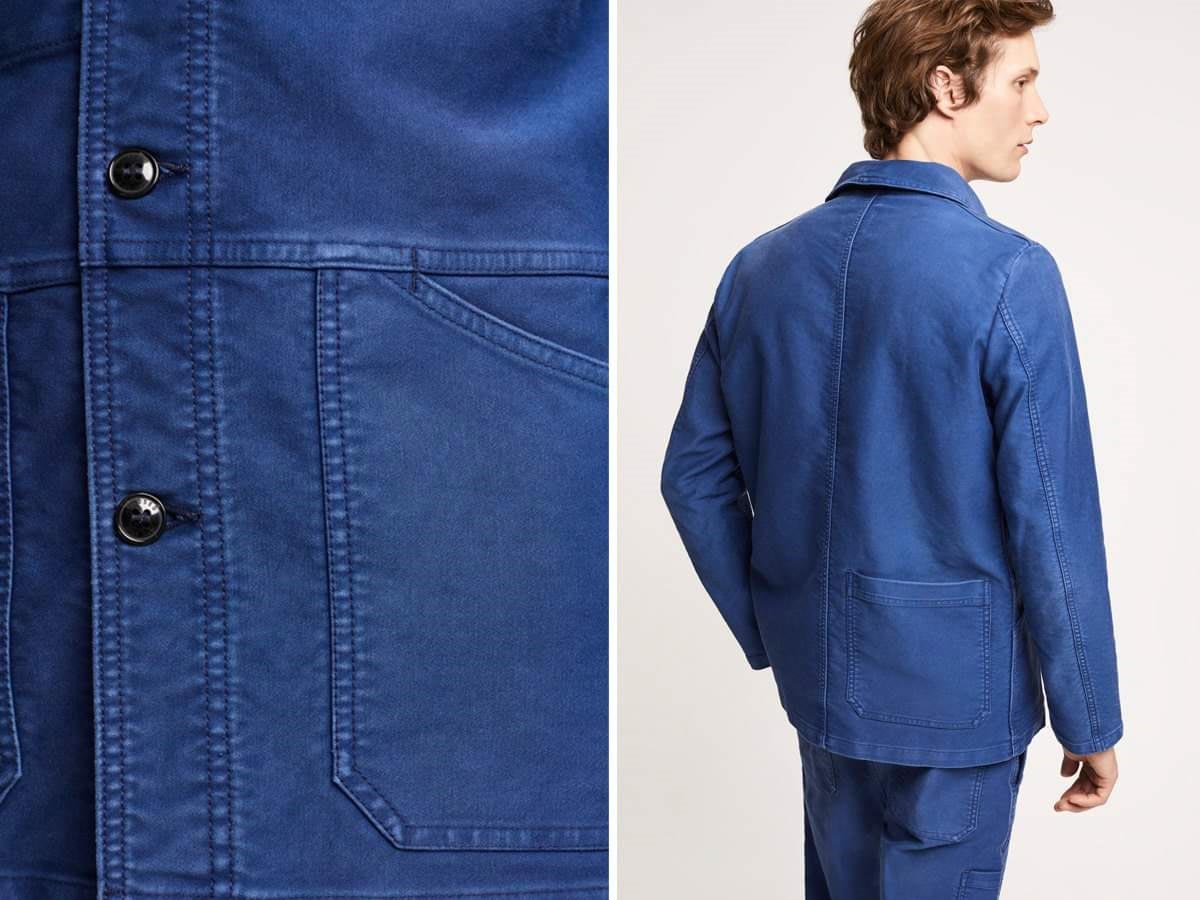
|
Functional Elegance: French Workwear in Current Trends
In the contemporary fashion landscape, work clothing has undergone a major transformation, evolving from a utilitarian uniform to an iconic expression of casual elegance. The last decades have highlighted the evolution of the French work jacket, from rural workwear to the elegant streets worldwide, establishing it as a pillar of modern wardrobes.
|
At the heart of the revival of French workwear, iconic and authentic brands reveal themselves, contributing to redefining the aesthetics of work clothing. Among them, Vétra, an indispensable figure founded in 1927 and still run by the same family, remains a global reference in French workwear. Famous for its creations that combine robustness and sophistication, the brand embodies heritage with timeless elegance. Vétra was the first to export its collections to Japan three decades ago, marking its authenticity. A l'ouvrier, born in 1905 in Paris, and Danton, the most Japanese of French brands founded in 1931, have also left a significant mark by supplying the City of Paris, RATP, SNCF, and renowned chefs. Their manufacturing quality and authentic history particularly appeal to the Japanese market, passionate about genuine French workwear.
These brands perpetuate the French artisanal spirit and actively participate in this workwear revival.
Let's take a look at the brands that are now iconic for their authenticity, manufacturing in their factories, and relevance!
Vétra: Tradition and Timeless Elegance
Founded in 1927, Vétra remains a global reference in French workwear. Celebrated for its robust and sophisticated creations, the brand has preserved all its archives since its foundation and is still run by the original family. Recent articles in specialized press and in the niche sector of "French workwear" highlight the brand's nine decades of expertise, emphasizing its central role in preserving French clothing heritage.
Inspiring newer houses that cite it as a model, Vétra establishes itself as a reference in the world of workwear. The brand continues to offer clothing that combines tradition and modernity, in perfect harmony with current trends.
|
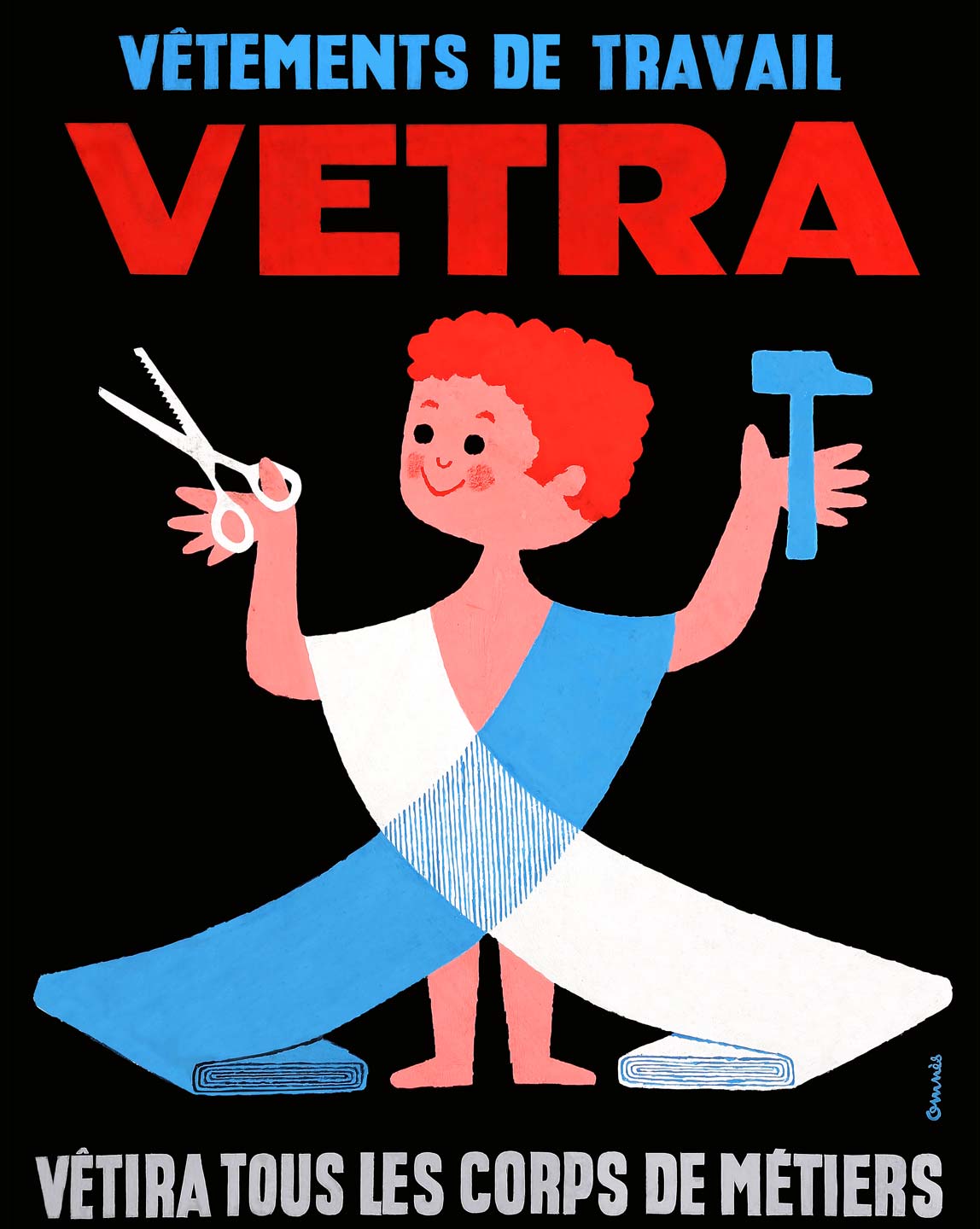
|
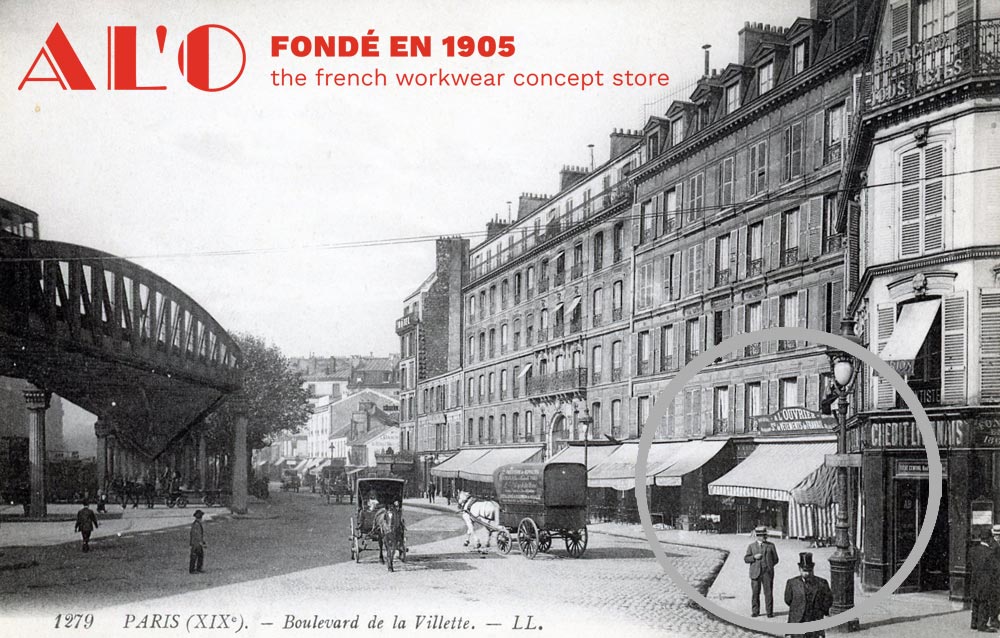
|
A l'ouvrier: A Century-Old Heritage
Founded in Paris in 1905, A l'Ouvrier is a Parisian boutique and brand that holds a special place in the evolution of French workwear. An ancestral address in Paris and a supplier to historical institutions, fashion critics praise the longevity of this brand, highlighting its ongoing role in redefining work clothing. A l'ouvrier's collections capture the French artisanal spirit, offering pieces that transcend eras and embody the quintessence of French work style.
|
Orcival: Excellence and Durability
Founded in Paris in 1939, established in Lyon since April 1940, and supplying the national navy from the early post-war years, Orcival is the historic brand of the true French sailor shirt. The brand with its bee emblem is 100% made in France in its own workshop. Recognized worldwide for its commitment to excellence and durability, its modern yet authentic items highlight the brand's rich history, emphasizing its unshakable reputation in the quality workwear domain. The long collaboration with the national navy attests to Orcival's reliability, reinforcing its position in the French workwear landscape. In 2017, for its exhibition "Is Fashion Modern," the MoMa in New York, after thorough investigation, recognized the brand as the reference for the French sailor shirt. The museum exhibited a sailor shirt from the French navy archives, taken from the manufacture alongside major Parisian houses like Chanel or Dior. A consecration for a brand originally producing a "work" product that became fashion and the emblem of France.
|
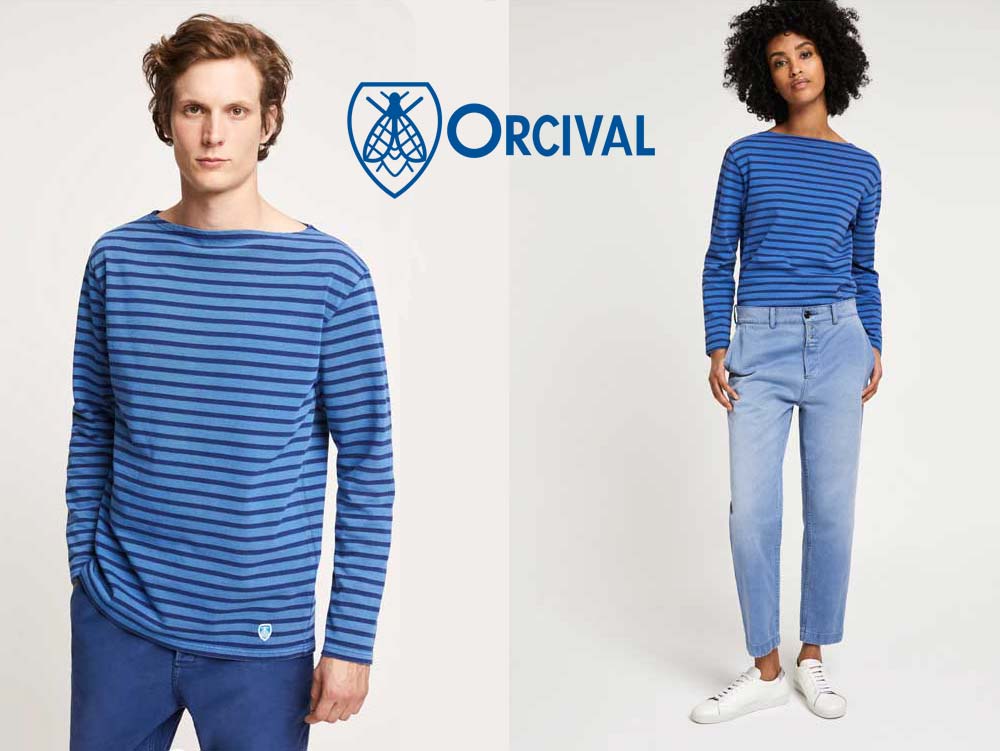
|
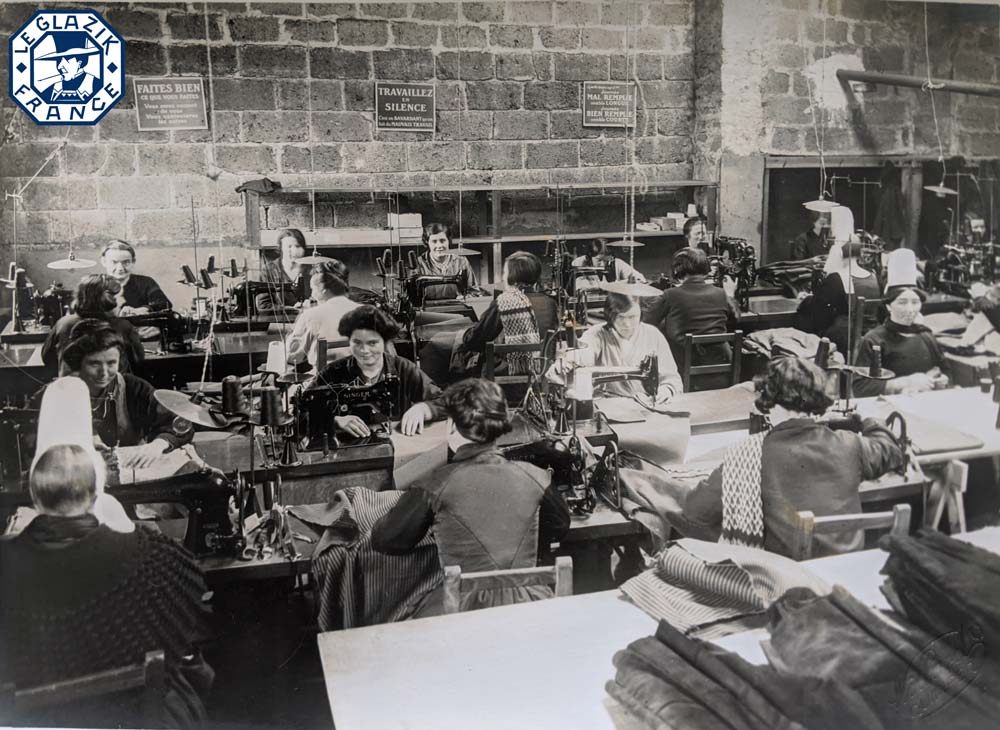
|
Le Glazik: The Essence of Breton Workwear
Founded in Quimper in 1928, Le Glazik embodies the essence of Breton workwear and plays a major role in preserving garment traditions. Historically the first manufacture founded to make the Breton smock and pea coat for professional fishermen (which it still supplies), Le Glazik has attracted increasing interest from fashion experts and lovers of fine products in recent years. Specialized press applauds the brand's ability to combine tradition and contemporaneity, creating a harmonious connection between the past and present of workwear. Its current complete range revolves around its iconic and historical pieces, manufactured in its workshop exactly as they were since its inception.
|
Danton: Japanese Modernity and French Heritage
Founded in 1931, Danton is also a renowned brand in the French workwear landscape. A small workshop in central France and a Parisian headquarters allowed the brand to quickly establish itself as a reference from the 1930s. Supplier to the City of Paris, the Métropolitain, SNCF, and renowned chefs, Danton remained an institution until the 1980s. Spotted shortly after Vétra in Japan, it took a different fashion turn. Danton's unique approach lies in the majority of its recent collections being made in Japan, adding a fashion touch while retaining the authentic origins of French work clothing. This fusion of French tradition and Japanese influence gives the French brand Danton a distinctive aesthetic, in line with current workwear trends.
|
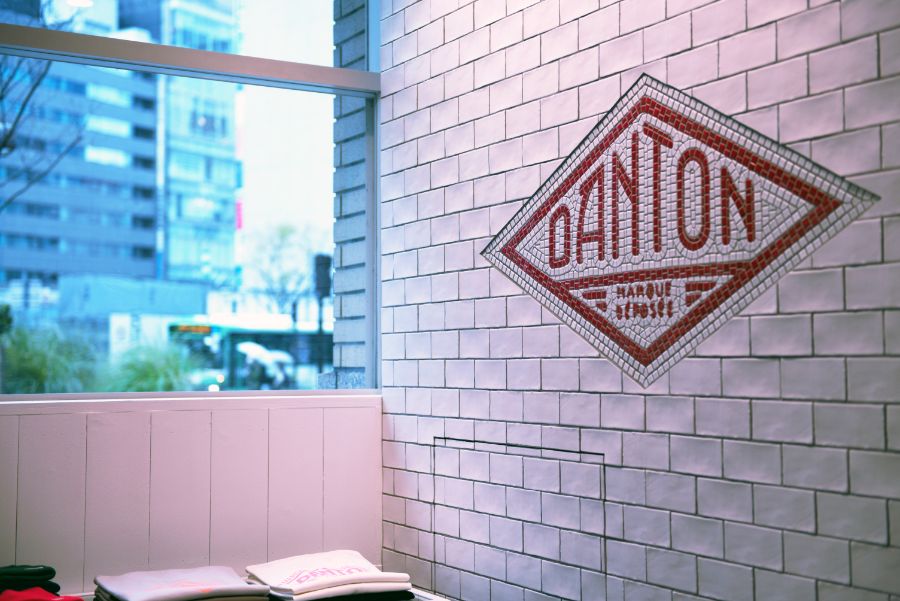
|
Fashion is moving towards ecological awareness, where buying second-hand becomes an activist act. Pre-loved garments find new life, reducing the demand for intensive production.
However, some prefer buying new to support local production and preserve French craftsmanship. It's a choice for craftsmanship, where each stitch tells a story of traditions passed down through generations. Buying less to buy better: an investment in sustainability, a way to ensure the continuity of the crafts that have made the reputation of French fashion. Thus, the duality between buying second-hand and buying new reflects the various facets of our commitment to sustainability and the preservation of artisanal heritage.
|
|
Vintage: A Must-Have in the French Workwear Sector
Vintage holds a significant place in the French workwear market, revealing a deep attachment to authenticity and history. Enthusiasts seek unique pieces, witnesses to artisanal craftsmanship and the robustness of French labor. Each worn garment tells a story, a past of hard work and commitment. Vintage becomes a true expression of style, blending timeless charm with the functionality sought in the world of workwear. A harmonious fusion of tradition and modernity that transcends eras, capturing the timeless spirit of French workwear.
|
Buy Less, Buy Better: Safeguarding French Know-HowSome prefer new in their quest for workwear, choosing to sculpt their own narrative on blank canvases. Buying new becomes a blank canvas, to be shaped with time and experiences, reflecting not only a garment but also personal evolution. Each stain, each fold becomes a imprint of their own story, an authentic patina built over the days. For them, workwear is a blank page, waiting for chapters to be written, capturing the essence of their daily lives rather than someone else's. A conscious choice to let wear reveal their own story while preserving and celebrating the know-how of historic French workshops, inscribing their investment in longevity and sustainability. This is the essence of slow fashion and durable clothing: they will keep their "French workwear" for decades, maybe even for several generations? |
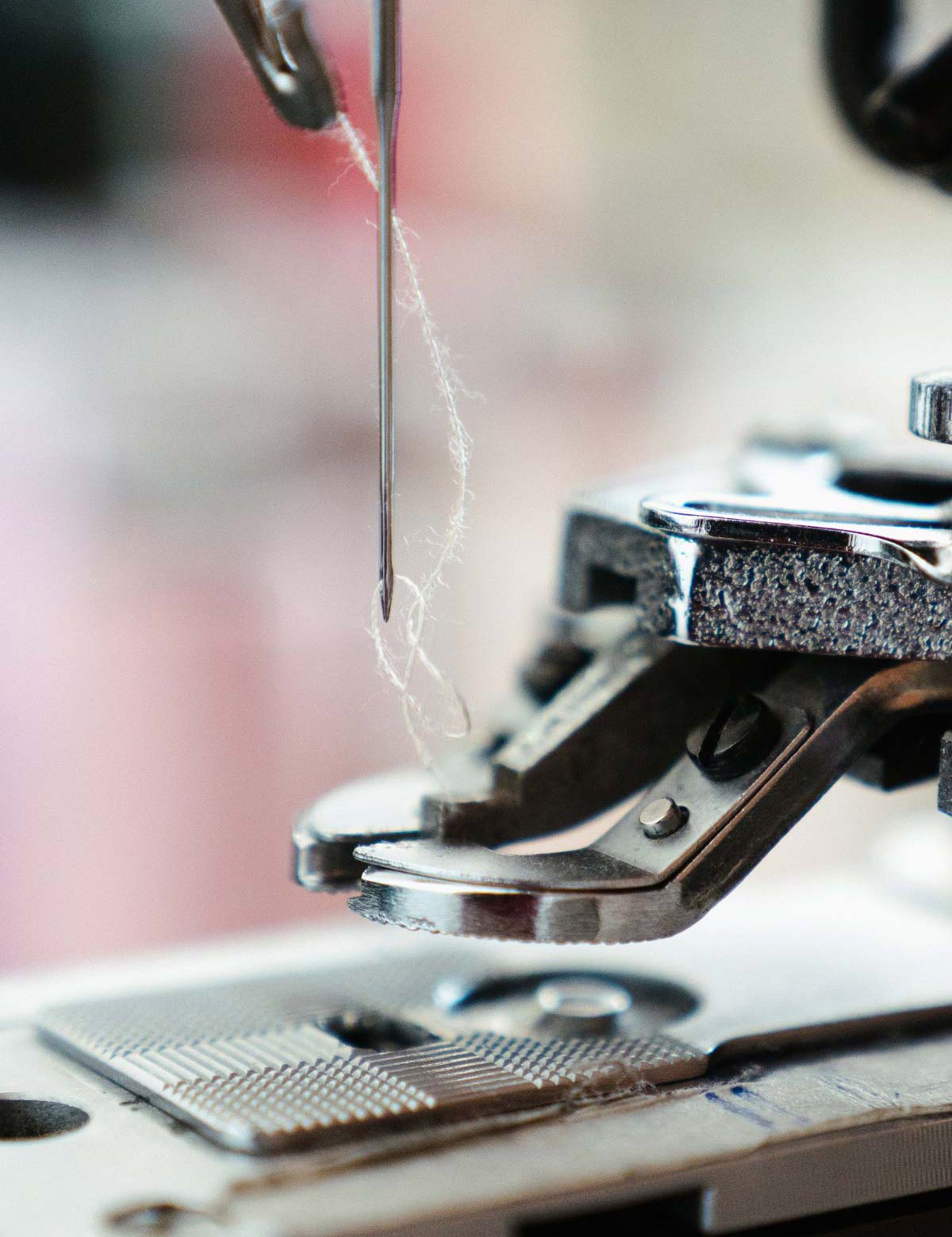
|
The revival of French workwear is embodied through brands like Vétra, A l'Ouvrier, Orcival, Le Glazik, and Danton, each adding its nuance to this stylistic evolution. Showcasing these iconic houses and the factories that defend their craftsmanship, recent articles celebrate the revival of workwear while emphasizing the importance of preserving the authenticity and craftsmanship that define these historic brands. These pioneers continue to shape the future of French workwear, inspiring a new generation in search of clothing that combines style, durability, and heritage.
Many other brands have emerged in recent years, with some very new ones reinterpreting workwear with a highly fashionable touch, while others resurrect historical brands that have disappeared, albeit without the archives and the characteristic family link of the originals. Some are acquired by investors and discreetly operate without being led by the original family.
